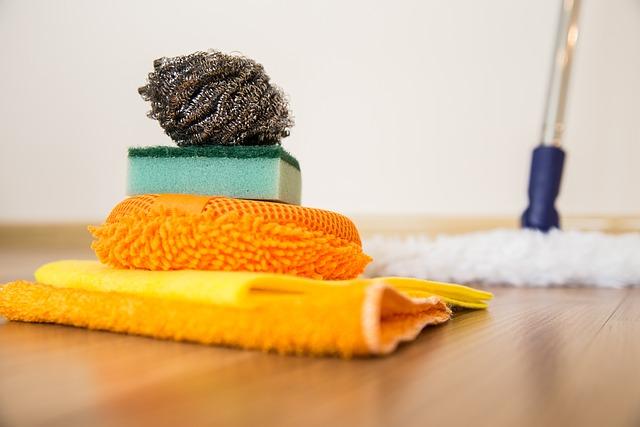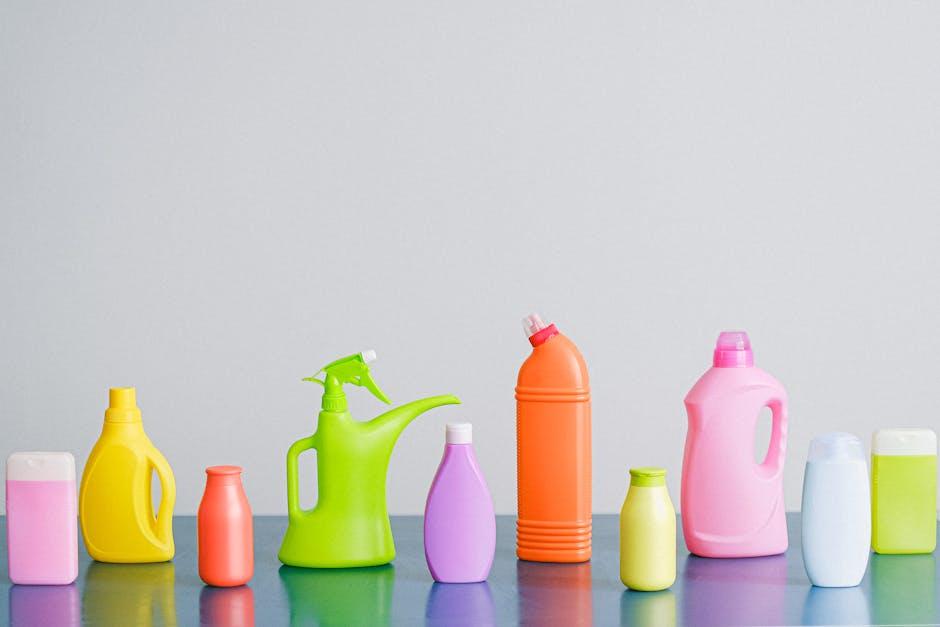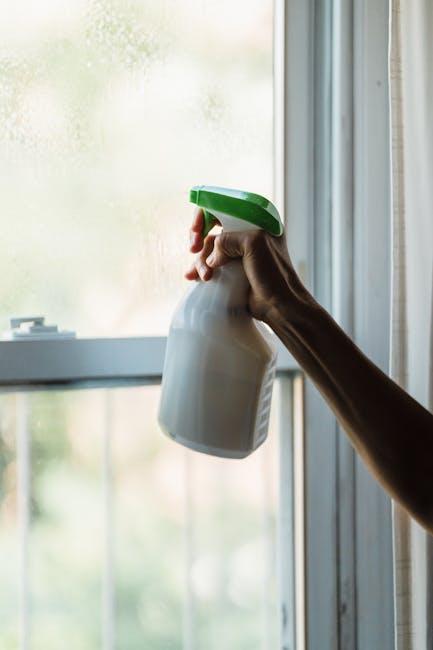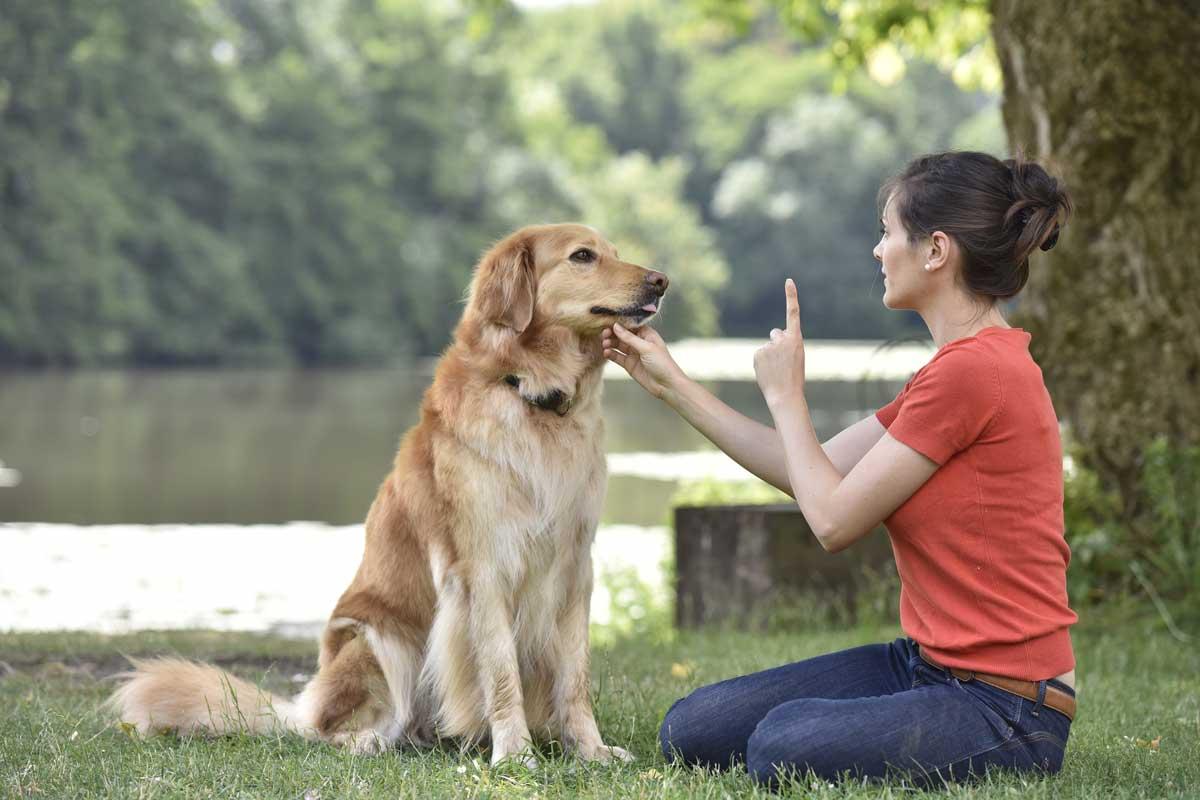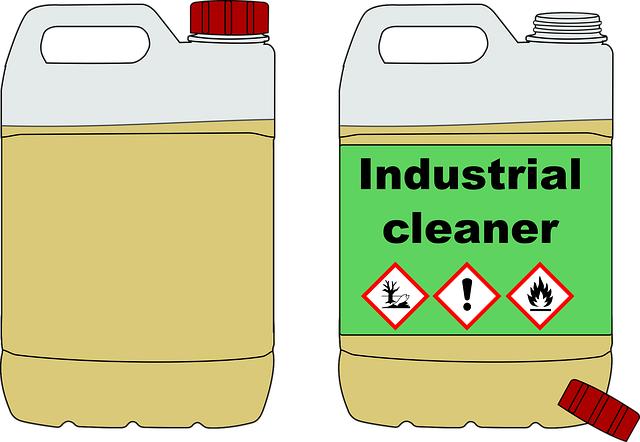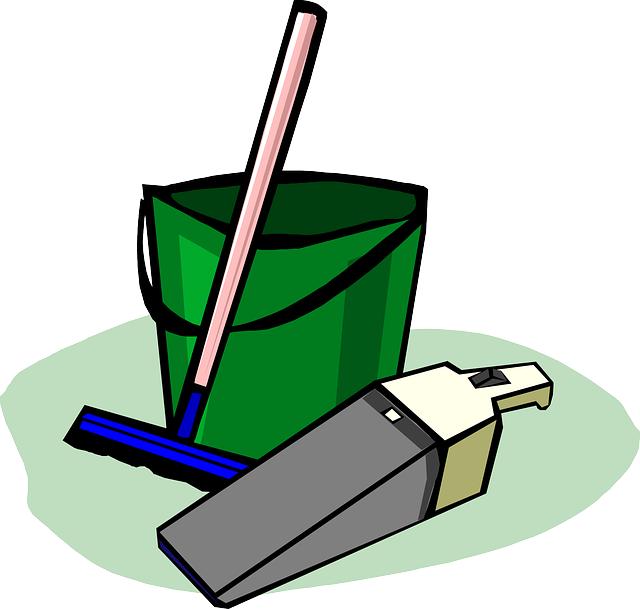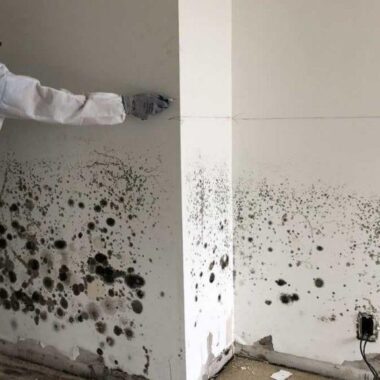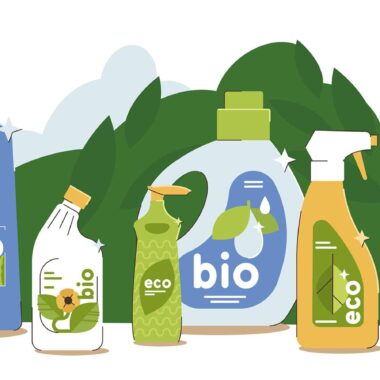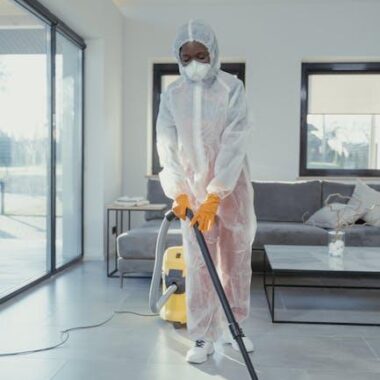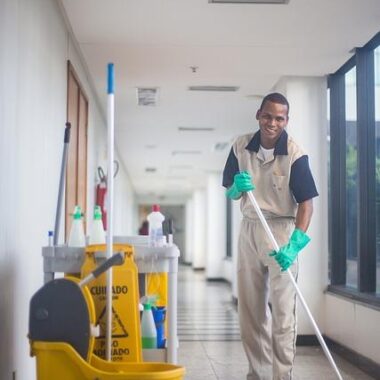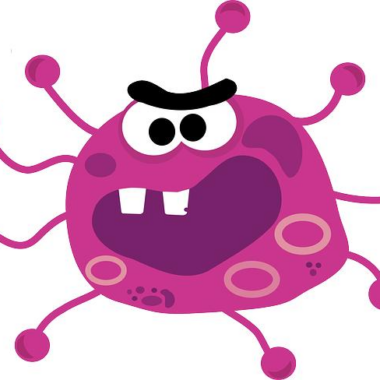Hey there, pet lover! 🐾 If you’ve ever noticed your furry friend snuggling into that spot you just cleaned with conventional cleaners or licking a surface that you thought was spotless, you might feel a twinge of concern. It’s no secret that our beloved pets often share our living spaces, and their health should be our top priority. In a world where chemical-laden products are the norm, it’s time to rethink our cleaning routines. Why? Because maintaining a chemical-free cleaning environment not only protects our pets from harmful substances but also contributes to a cleaner, safer home for everyone.
Imagine walking into your home, greeted by a fresh, clean scent—no harsh chemical odors lingering in the air. Instead of worrying about the cleaning supplies impacting your pet’s health, you can feel good about every spray and wipe! Whether you have a curious cat or an energetic dog, understanding the benefits of opting for natural cleaning solutions can transform your cleaning game. Let’s dive into why a chemical-free cleaning routine isn’t just a trend; it’s a lifestyle change that can enhance your furry companion’s well-being and your family’s peace of mind. Ready to give your home a pet-safe makeover? Let’s jump into it!
Table of Contents
- – Why a Chemical-Free Cleaning Routine is Essential for Pet Owners
- – The Hidden Dangers of Common Cleaning Products for Your Furry Friends
- - Simple Swaps: Natural Alternatives to Pet-Unfriendly Cleaners
- – How to Create a Safe Cleaning Schedule for Your Home
- – The Health Benefits of Adopting a Chemical-Free Cleaning Lifestyle
- – Tips for Training Your Pets to Stay Away from Cleaning Areas
- – Real Stories: How Switching to Chemical-Free Cleaners Changed Lives
- – Engaging Your Family: Getting Everyone on Board with Natural Cleaning
- – Cost-Effective Ways to Make Your Own Pet-Safe Cleaning Supplies
- - Making the Change: Steps to Transition into a Chemical-Free Home
- Q&A
- Insights and Conclusions
– Why a Chemical-Free Cleaning Routine is Essential for Pet Owners
As pet owners, we all want what’s best for our furry friends. But have you ever thought about how the cleaning products we use could be affecting their health? Many conventional cleaners are packed with harsh chemicals that can lead to a whole host of problems for our pets, from skin irritations to respiratory issues. By making the switch to a chemical-free cleaning routine, we can create a safer environment for our beloved companions.
Consider this: animals are naturally curious. They explore their world with their noses (and mouths!), which means they end up coming into contact with the surfaces we clean. That fresh, lemony scent of your multipurpose cleaner might smell nice to you, but it could be a hazardous cocktail for your pet. They can easily ingest residues left on floors or furniture that we’ve just cleaned, leading to potential health risks. How can we protect our fur babies? It’s simple—by opting for natural cleaning solutions that are safe for them.
Going chemical-free not only safeguards our pets but also benefits their overall well-being. Many pets suffer from allergies or sensitivities, which can be triggered by synthetic fragrances and irritants in conventional cleaning products. Using ingredients like vinegar, baking soda, and essential oils can help you clean effectively without causing harm. Imagine turning your home into a sanctuary where the air is fresh, and the surfaces are clean without the worry of chemical exposure!
Here are some pet-friendly ingredients you can incorporate into your cleaning routine:
- Baking soda: Great for deodorizing and scrubbing surfaces.
- White vinegar: A natural disinfectant that cuts through grease and odors.
- Castile soap: Gentle and effective for general cleaning.
- Essential oils: Bring natural fragrances; just be careful as some oils can be toxic to pets.
Implementing a chemical-free routine not only keeps your pets safe; it also contributes to a healthier home environment overall. Many commercial cleaners can emit volatile organic compounds (VOCs) that contribute to air pollution indoors, which can make us humans feel sluggish or headaches as well. By making the switch, you’re improving indoor air quality, benefiting the humans and pets alike.
| Common Chemicals | Potential Risks |
|---|---|
| Ammonia | Respiratory irritation, skin burns |
| Chlorine bleach | Vomiting, severe respiratory issues |
| Phthalates | Hormonal disruption |
| Formaldehyde | Allergic reactions, cancer risk |
In essence, a chemical-free cleaning routine is not just a trendy choice; it’s a responsible one for any pet parent. Not only does it protect our animal companions from unnecessary risks, but it also fosters a nurturing and healthy space for all the loved ones who share our homes. So, why not give it a try? Your pets (and your nose) will thank you!
– The Hidden Dangers of Common Cleaning Products for Your Furry Friends
We often perceive our homes as a safe haven for our pets, but many common cleaning products contain toxic ingredients that can pose serious risks to our furry friends. Coupled with their natural curiosity and tendency to explore their environments, these substances can lead to harmful exposure. Imagine your pup getting into the cupboard under the sink—what’s lurking there could spell trouble!
One of the most frequent culprits is bleach, found in a plethora of household cleaners. While it might leave your counters sparkling, pets can suffer from respiratory issues, skin irritation, and even gastrointestinal upset if they ingest it. Cats are particularly sensitive to these fumes, so using bleach around them could create an unsafe environment.
Another common cleaning product that raises red flags is ammonia. It’s a component in many glass and surface cleaners and can emit strong fumes that irritate your pet’s airways. Our four-legged companions may end up gasping or coughing when exposed, and repeated exposure can lead to serious health concerns. Plus, ammonia can aggravate existing health issues, like asthma, in sensitive pets.
What about fabric softeners? They’re meant to keep your laundry smelling fresh, but they often contain quaternary ammonium compounds. These can be toxic to pets, leading to symptoms ranging from vomiting to skin rashes. If your pet loves to cuddle in freshly washed blankets, consider using fragrance-free, natural alternatives instead.
Let’s not overlook the effects of essential oils! While they’re lauded for their calming properties in humans, many essential oils—like tea tree and peppermint—are harmful to pets, particularly cats and small dogs. They can cause liver damage or poisoning when diffused or applied to surfaces. Always double-check ingredient lists and do thorough research before using aromatherapy products around your companions.
Opting for chemical-free cleaning methods isn’t just about avoiding toxins; it also promotes a healthier lifestyle for both you and your pets. Think of alternatives like vinegar, baking soda, and lemon juice. These natural ingredients not only clean effectively but also pose minimal risks to your furry friends. Here’s a quick look at some pet-safe alternatives:
| Common Cleaners | Pet-Safe Alternatives |
|---|---|
| Bleach | Vinegar and baking soda |
| Ammonia | Soap and water |
| Fabric Softener | White vinegar |
| Essential Oils | Coconut oil or pet-safe fragrances |
– Simple Swaps: Natural Alternatives to Pet-Unfriendly Cleaners
Cleaning your home doesn’t have to come with the added worry of exposing your furry friends to harmful chemicals. You’d be surprised how many everyday cleaning products we have stashed away are dangerous for pets. Luckily, there are some simple, effective, and natural alternatives you can whip up right in your kitchen.
1. Vinegar Solutions: This kitchen staple is not just great for your salad dressing! Mix equal parts of water and white vinegar in a spray bottle to create a powerful all-purpose cleaner. It’s perfect for windows, counters, and even pet toys. Plus, the smell dissipates quickly, so your home won’t smell like a salad bar for long!
2. Baking Soda Scrubs: Stubborn stains got you feeling down? A sprinkle of baking soda can save the day! Combine it with a bit of water to form a paste and apply it to those tough spots. Let it sit for a few minutes before scrubbing away. Baking soda not only deodorizes but also gently cleans surfaces without scratching them, making it safe for your pets to be around.
3. Castile Soap Magic: If you’re looking for a soap that can do it all, look no further than castile soap. Just a few drops mixed with water can handle everything from floors to dishes. It’s a versatile cleaner that’s biodegradable and safe, plus you can pick up scents that your pets won’t mind when they come rushing to investigate!
4. Essential Oils with Caution: While many essential oils can work wonders, not all are safe for pets. Lavender and chamomile can promote relaxation and may serve as a great addition to your cleaning regimen if used sparingly. Always check the safety for your specific pet and dilute them well to avoid overwhelming their senses.
5. Lemon Freshness: Feeling citrusy? Lemon can be a fantastic natural disinfectant. Just mix water and lemon juice in a spray bottle for a refreshing cleaner that cuts grease and leaves a lovely scent. You might even find that your pets are drawn to the fresh aroma, making it a fun cleaning experience for all!
| Cleaner | Use Case | Pet Safety |
|---|---|---|
| Vinegar | All-purpose cleaner | Safe |
| Baking Soda | Stain removal | Safe |
| Castile Soap | Multi-surface | Safe |
| Essential Oils | Moderate use only | Varies by oil |
| Lemon Juice | Deodorizer | Safe |
- How to Create a Safe Cleaning Schedule for Your Home
Creating a safe cleaning schedule is essential, especially for pet owners who want to maintain a healthy environment for their furry friends. First, let’s think about your daily routine. How often do you find yourself picking up after your pets? With a busy life, it can be easy to let things slip. But the key is establishing a regular cleaning rhythm that aligns with your lifestyle. For instance, consider making a quick 10-minute tidy-up session a part of your daily routine. This can make a huge difference over time!
Now, let’s break down your weekly tasks. You can assign different days to different areas of your home or types of tasks to keep things manageable. For example:
- Monday:
- Tuesday:
- Wednesday:
- Thursday:
- Friday:
- Saturday:
- Sunday:
When devising your cleaning schedule, don’t forget about monthly tasks that can keep your home in top-shape. Perhaps your monthly deep cleaning involves washing windows or decluttering spaces that gather dust and pet hair. If you have specific cleaning products you love (that are chemical-free, of course!), keep them organized so they’re easy to grab when you need them.
Also, consider seasonal changes. As the seasons shift, so does the mess! For instance, spring cleaning means washing curtains, minimizing allergens, and looking out for those pesky pet odors that tend to linger. It’s a great time to reassess your schedule and tweak things as your needs evolve. This way, you can stay ahead of the game and keep your home fresh.
Don’t forget to incorporate breaks into your cleaning routine. Cleaning can be a marathon sometimes, but pacing yourself is crucial for staying motivated. Short breaks will help you recharge. Maybe reward yourself after a cleaning spree with a cozy pet cuddle session! Remember, it’s not just about cleaning—it’s also about spending quality time with your fur babies.
once you’ve established a rhythm, it’s good to keep track of your progress. Consider using a chart or a simple checklist to track your cleaning activities. This way, you can literally see how much cleaner (and safer!) your home has become. Plus, it’s always nice to check off tasks and feel that satisfaction of a completed job!
– The Health Benefits of Adopting a Chemical-Free Cleaning Lifestyle
Making the shift to a chemical-free cleaning lifestyle not only protects your furry friends but also benefits your health and well-being in ways you might not have thought of. Let’s face it, who wants to clean their home with products packed full of hazardous chemicals? Going green means you’re spiking your home’s freshness naturally while eliminating toxins that could affect you and your pet.
First off, ditching the harsh cleaning agents can significantly reduce the risk of respiratory issues. Did you know that many conventional cleaners release volatile organic compounds (VOCs)? These invisible pollutants can linger in your home long after the cleaning is done, affecting both you and your pets. By switching to natural alternatives, you’re ensuring that you and your four-legged companions breathe easier.
It’s also essential to consider skin sensitivities. Pets can have adverse reactions to synthetic chemicals just like humans do. An all-natural cleaning routine means you’re less likely to expose your furry buddy to irritants that could cause skin reactions, allergies, or gastrointestinal distress. Imagine the peace of mind you’ll have knowing you’re providing a safe space for your pet to roam free without the risk of harmful residues.
Now, let’s talk about the environment. By choosing eco-friendly cleaning options, you’re not just creating a safe haven at home; you’re also playing a part in reducing your carbon footprint. Many conventional cleaners end up in our waterways, harming marine life and ecosystems. Adopting a greener approach helps protect our planet, benefiting both animals and humans in the long run.
Another fantastic benefit? Budget-friendly alternatives. Many natural cleaning solutions can be made from ingredients you likely already have in your pantry! Think baking soda, vinegar, and lemon juice—simple, effective, and cheap. Not only will you save money, but you’ll also contribute less plastic waste by opting for reusable containers.
Lastly, let’s not forget about the emotional aspect. A home that’s free from chemical clutter promotes a sense of well-being. The fresh, natural scents of your homemade cleaners can uplift your mood and create a calming atmosphere for both you and your pets. When your environment feels good, it radiates positivity, and who wouldn’t want that?
– Tips for Training Your Pets to Stay Away from Cleaning Areas
Training your furry friends to steer clear of cleaning areas is essential, especially when you’re committed to a chemical-free zone. Think of it as setting up a safe bubble in your home! You can make this process smooth and fun with some techniques that tap into your pet’s natural instincts.
Start by defining the cleaning zones in your home. Use colorful markers, like sticky notes or tape, to visually signify these areas for your pets. Dogs and cats often learn better when they can see the boundaries. When they venture too close to these areas, show them the marker and gently redirect them to an appropriate spot, praising them for moving away.
Establish consistent commands that you’ll use whenever you’re in the cleaning zone. Words like “off” or “stay back” can become habitual cues your pets learn to associate with cleaning activities. Repeat these commands regularly, and reward your pet when they respond appropriately. They’ll start to realize that staying clear of the cleaning areas brings them treats and praise!
Make cleaning less frequent while training. Don’t bombard them with cleaning every day; that might raise their curiosity. Instead, plan cleaning days and ensure your pets are occupied with toys or puzzles in another room. This way, they’ll associate those areas with fun times rather than cleaning chaos, reducing their desire to check it out.
A bonus tip? Consider using positive reinforcement. If your pet stays away during a cleaning session, shower them with love and treats! This not only encourages them to maintain distance but also strengthens your bond. Remember, celebrating small victories along the way makes training enjoyable for both you and your pets.
be patient and observe your pets’ behavior. Recognizing their triggers—like sudden sounds from cleaning appliances—can help you prepare better training sessions. With a little persistence and lots of love, you’ll create a peaceful environment where your pets confidently steer clear of those cleaning zones.
– Real Stories: How Switching to Chemical-Free Cleaners Changed Lives
Imagine this: You’ve just cleaned your home, the floors are shining, and everything smells fresh. But what’s lurking around the corner? Your furry friend, ready to roam and sniff every nook and cranny. For many pet owners, the switch to chemical-free cleaners isn’t just a choice; it’s a lifesaver. Take Sarah, for example, who faced a daunting challenge with her cat’s frequent sneezing and skin irritations. After switching to plant-based cleaners, she noticed a remarkable change—her cat’s health improved within weeks!
Then there’s Jake, who recently adopted a rambunctious puppy. Initially, he used traditional cleaning products, thinking a clean home would be worth the potential risks. However, after discovering that his pup was experiencing gastrointestinal issues, he made the leap to eco-friendly alternatives. Now, not only does Jake feel more relaxed about his cleaning routine, but his puppy is thriving, full of energy, and no longer has those pesky health problems.
Real-life transformations don’t stop there. When Emily switched to using natural cleaners, she felt a wave of relief wash over her. Her kiddos were always around, tumbling on the floor and getting into everything. By opting for chemical-free products, she didn’t have to worry about harmful residues left behind. It was a win-win situation—her home sparkled while keeping her little ones safe.
- Improved air quality — Both pets and humans breathe easier without harsh chemicals hanging in the air.
- Less irritability — A gentle home environment means fewer allergic reactions for sensitive pets.
- Peace of mind — Knowing your cleaning supplies pose no risk allows for more fun family time!
Switching to natural products also can lead to unexpected bonuses—like saving money! Many pet owners have found that they can whip up their own cleaning solutions with simple, safe ingredients like vinegar and baking soda. For instance, Mia created a multi-surface spray that works wonders for her home while keeping her two dogs safe. Sharing recipes with friends has become a delightful topic of conversation in her circle.
| Benefit | Description |
|---|---|
| Safer surroundings | Reduce the risk of chemical burns or ingestion by pets. |
| Better health | Supporting overall wellness for your furry companions. |
| Environmental impact | Make a positive change for Mother Earth by using eco-friendly products. |
From skin and respiratory issues to a newfound love of DIY recipes for cleaning, the impact has been profound. It’s incredible how such a simple change—opting for chemical-free solutions—can result in better health and a happier home. As more and more pet owners share their stories, the movement towards safer cleaning practices gains momentum. Join them and experience the difference using chemical-free cleaners can make for your family!
– Engaging Your Family: Getting Everyone on Board with Natural Cleaning
One effective way to get everyone excited about natural cleaning is to organize a family cleaning day. This doesn’t have to feel like a chore; turn on some music and treat it like a dance-off with brooms as props! Let your family choose their cleaning station—kitchen, bathroom, or living room—and give them the tools (like essential oils, baking soda, or lemon) to make their space sparkle. It’s a wonderful opportunity to bond and share tips on what works best. You may be surprised at the creative solutions your kids can come up with!
Don’t forget about the power of education. Take some time to discuss the benefits of opting for natural cleaning products. You could create a simple visual table that illustrates the differences between chemical cleaners and their natural counterparts. Something like this might resonate:
| Chemical Cleaners | Natural Alternatives |
|---|---|
| Harsh fumes | Fresh scents like lemon or lavender |
| Skin irritants | Gentle and safe ingredients |
| Environmental harm | Biodegradable & eco-friendly options |
Another engaging approach is to involve your family in creating your own cleaning supplies. Gather everyone together, grab some spray bottles, essential oils, and other natural ingredients, and whip up some DIY cleaners. Not only will they take pride in the products they’ve made, but they’ll also learn about the ingredients that are safe for both pets and humans. Plus, kids often love science experiments, and this is a great chance to tap into that curiosity!
Have you considered making it a bit competitive? Create a “cleaning challenge” where each family member competes to see who can clean a designated area the best. Let everyone vote on the winner, and perhaps offer a small prize—like choosing the next family movie night feature. This turns cleaning into a fun game and gives everyone a motivational boost!
Lastly, celebrate your successes together! After a good old-fashioned family cleaning day, take a moment to enjoy the freshly cleaned space. Perhaps have a cozy movie night or a special meal together to appreciate the effort everyone put in. A little celebration reinforces the idea that working as a team leads to positive outcomes—and a sparkling home is just one of them!
– Cost-Effective Ways to Make Your Own Pet-Safe Cleaning Supplies
Let’s face it, owning pets is a joy, but it can come with a few challenges—like keeping your home clean! But the thought of using harsh chemicals can stress you out, right? Thankfully, there are plenty of ways to whip up your own cleaning supplies using everyday ingredients that are not only budget-friendly but also safe for your furry friends.
First up, you can tackle those pesky stains and odors with a simple solution: vinegar and baking soda. This dynamic duo works wonders! Mix one cup of vinegar with one cup of water in a spray bottle, and when you need a scrubbier solution, sprinkle some baking soda on the stain before spraying the vinegar mix. The fizzing reaction will lift dirt and stains, leaving your home fresh as a daisy. Plus, you won’t have to hold your breath while cleaning!
Another powerhouse is castile soap. This plant-based soap is incredibly versatile and is safe for both pets and the environment. You can create an all-purpose cleaner by mixing a tablespoon of castile soap with two cups of water. This mixture is perfect for floors, countertops, and even pet toys! Your pets can safely play with their toys again without you worrying about harmful residues.
Don’t forget about the magic of essential oils (but do check their safety for cats and dogs first!). Oils like lavender or lemon not only smell divine but can boost your cleaning game. Just add a few drops to your vinegar or castile soap solution for a refreshing scent. Remember, a little goes a long way, so keep it light to ensure it’s safe for your pets while still giving your space a delightful aroma!
One more tip? Cornstarch can be an unexpected ally in your cleaning routine. It’s fantastic for getting windows sparkling clean! Mix two tablespoons of cornstarch with a cup of vinegar and a cup of water in a spray bottle. Shake it up, spray it on your windows, and wipe with a soft cloth. You’ll be amazed at how clear your windows will look—just don’t let the pets try to help!
If you’re looking for an extra layer of safety, consider using a DIY surface disinfectant. A simple recipe can be made using the ingredients mentioned above: combine 1/2 cup of vinegar, 1 cup of water, and 10 drops of an essential oil (if safe for your pets). This spray doesn’t just disinfect; it also leaves behind a fresh scent that’ll make your home feel brand new.
– Making the Change: Steps to Transition into a Chemical-Free Home
Transitioning to a chemical-free home can feel like a big leap, but don’t worry—you’re not alone on this journey! Start by assessing the cleaning products you currently use. Gather all your supplies and take a good look at the labels. If you find ingredients that you can’t pronounce or major allergens, it might be time for an upgrade. Remember, knowledge is power, and being informed about what you’re bringing into your home is the first step.
Next up, set some goals. Do you want to replace all your cleaning products in one go or take a more gradual approach? Make a plan that works for your lifestyle. You might start by swapping out one product at a time. For instance, when you run out of glass cleaner, grab a vinegar-based option instead. This way, you’ll also save some money while slowly transforming your cleaning routine!
It’s time to stock your pantry with natural alternatives. Think about ingredients like baking soda, vinegar, lemon juice, and castile soap—these are not only gentle on your home but also effective at cleaning! Consider creating a little cheat sheet by jotting down how to use these products for different cleaning tasks. For example:
| Cleaning Task | Natural Solution |
|---|---|
| Glass surfaces | Mix equal parts vinegar and water |
| Foul odors | Place an open box of baking soda in the fridge |
| Countertops | Wipe down with diluted castile soap |
Now comes the fun part—experimenting! Try out various natural concoctions and see what works best for your home. Keep in mind the strengths of each ingredient. For example, baking soda can act as an abrasive cleaner, while vinegar works wonders as a disinfectant. Mix it up, and don’t hesitate to get creative with some DIY cleaning recipes!
As you transition, remember to involve your family. Teach them about the benefits of a chemical-free home, especially if you have pets. Sharing your excitement for natural cleaning can make it a team effort, and who knows—they might find their own favorite concoctions! And if your pets ever seem curious, reassure them that these safe ingredients won’t harm them.
be patient with yourself. This isn’t a race. A chemical-free home is a journey that involves trial and error, and it’s all about making choices that align with your values. Celebrate the small victories—maybe a sparkling clean window or a fresh-scented room. These little wins add up, creating a sanctuary that is safe for both you and your furry companions!
Q&A
Q&A: s
Q: Why should I consider a chemical-free cleaning routine as a pet owner?
A: Great question! Pets love to explore every nook and cranny of the house, and that includes rolling around on floors cleaned with harsh chemicals. A chemical-free routine keeps your home safe for your furry friends while also being better for the environment. Plus, who doesn’t want a cleaner home without the worry of toxic residues?
Q: What are some common cleaning products I should avoid?
A: Think of those bright bottles filled with fancy names—like bleach and ammonia. These nasty chemicals can irritate your pet’s respiratory system and skin. Even popular air fresheners can contain harmful ingredients. It’s like inviting your pets to play with invisible monsters!
Q: What can I use instead of commercial cleaners?
A: You’ve got tons of natural options! Vinegar, baking soda, and lemon juice pack a punch on stains and odors without the yucky side effects. For example, a simple mix of vinegar and water can clean your windows and shine them like brand new—without harming your pets!
Q: Are there any specific cleaning tips I should follow?
A: Absolutely! Start with regular vacuuming to keep pet hair at bay and even use a steam cleaner for deeper cleans—just check that any cleaning solutions you use are pet-safe. Also, consider washing your pet’s bedding with a hypoallergenic detergent. It’s like giving them a cloud to sleep on!
Q: How do I know if my cleaning products are really safe?
A: You can check for labels! Look for products that are free of harsh chemicals and have natural ingredients. Additionally, websites and organizations dedicated to pet safety can guide you. Staying informed is key!
Q: Can going chemical-free really make that much difference?
A: Oh, for sure! Not only does it protect your pets from possible chemical exposure, but it also creates a healthier home environment for everyone. Imagine reducing allergens and irritants—your pets (and you!) will thank you for a cleaner, safer space to roam!
Q: Any final thoughts for pet owners considering a shift to chemical-free cleaning?
A: Just do it! Start small—maybe swap one product at a time—so it doesn’t feel overwhelming. Your pets will definitely appreciate the effort, and you’ll likely notice a difference in how fresh your home feels. Go on, embrace the green and clean lifestyle—you got this!
Want to dive into the chemical-free movement? Share your favorite natural cleaning tips below, and let’s make our homes safer for our beloved pets!
Insights and Conclusions
As we wrap up, let’s take a moment to reflect on the beauty of a chemical-free cleaning routine, especially for pet owners. Isn’t it amazing that the home you share with your furry friend can be both sparkling clean and safe from harsh chemicals? By opting for natural solutions—think vinegar, baking soda, and essential oils—you’re not just giving your living space a refresh but also protecting your pets from potential harm.
Imagine how much more enjoyable playtime can be when you’re not worried about the chemicals lingering on the floors or surfaces. Plus, you might even find that these natural cleansers work just as well, if not better, than their commercial counterparts—after all, Mother Nature knows a thing or two about cleaning!
So, why not give it a shot? Start small with one room, or even just one cleaning challenge. You’ll be surprised at how much more inviting your home feels when it’s free of harmful substances. And remember, the health and happiness of your pets—and yourself—are always worth the effort.
Ready to make the switch? Grab your natural cleaning products today, and let’s create a safer, cleaner sanctuary for both you and your beloved pets—because a happier home begins with a healthier one! Happy cleaning!

